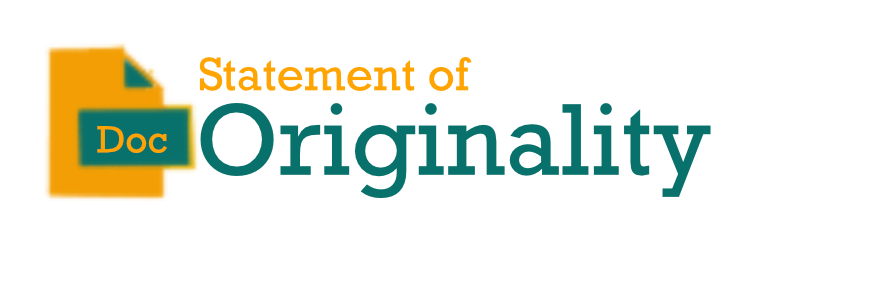Repositioning Islamic social reporting as a strategic moderator: Evidence from Indonesian Islamic banks
DOI:
https://doi.org/10.18326/muqtasid.v15i2.89-104Keywords:
financial performance, firm value, islamic bank, islamic social reporting, maqasid shariaAbstract
This study aims to assess the effect of Islamic Social Reporting (ISR) on the relationship between financial performance and firm value in Indonesian Islamic banks. This study utilizes the Moderated Regression Analysis model, with ISR serving as the moderating variable, financial performance metrics (Financing to Deposit Ratio [FDR], Return on Assets [ROA], and Capital Adequacy Ratio [CAR]) as the independent variables, and firm value (EVA) as the dependent variable. The study focuses on ten Islamic commercial banks in Indonesia from 2017 to 2023 and is based on the analysis of 70 annual financial reports, utilizing Moderated Regression Analysis. The findings indicate that ISR significantly moderates and strengthens the relationship between ROA and EVA. This underscores the critical role of ISR reporting in helping regulators develop a more comprehensive framework and in reinforcing the industry’s adherence to Islamic economic principles. By exploring the nuanced role of ISR in amplifying financial signals like ROA, this study subtly repositions ISR from a mere reporting obligation to a strategic element that deepens the value relevance of Islamic financial disclosures.
References
Agustin, I., & Annisa, A. A. (2021). Overview faktor penentu nilai perusahaan. Journal of Accounting and Digital Finance, 1(2), 85–95. https://doi.org/10.53088/jadfi.v1i2.81.
Agustina, A. (2020). The influence of disclosure of Islamic social reporting, profitability, and liquidity on firm value in companies listed in Jakarta Islamic index Indonesia stock exchange 2016-2019. Indonesian Interdisciplinary Journal of Sharia Economics, 3(1), 69–84.
Aini, N. (2022). Pengaruh profitabilitas dan kecukupan modal terhadap nilai perusahaan dengan Islamic social reporting (ISR) sebagai variabel moderasi (studi pada unit usaha syariah Indonesia tahun 2016-2020). Skripsi. Universitas Islam Riau.
Andriyani, F., Muniri, M., & Nurohman, D. (2021). Zakah as intervening variable in enhancing sharia bank in Indonesia. Indonesian Economic Review, 2(1), 16–21. https://doi.org/10.53787/iconev.v2i1.3.
Arsad, S., Said, R., Yusoff, H., & Ahmad, R. (2022). Islamic corporate social responsibility disclosure index: The application of maqasid shari’ah and maslahah. International Journal of Academic Research in Business and Social Sciences, 12(7), 1038-1058. https://doi.org/10.6007/ijarbss/v12-i7/14331.
Asari, L. D., Setiyowati, S. W., & Yogivaria, D. W. (2021). Moderasi Islamic social reporting pada ukuran perusahaan, kecukupan modal, dan profitabilitas terhadap nilai perusahaan. Jurnal Iqtishoduna, 17(2), 97–113. https://doi.org/10.18860/iq.v17i2.11615.
Azwa, S., & Afriani, S. (2016). Analisis kinerja keuangan pada PT. Bank Pembiayaan Rakyat Syariah (BPRS) Muamalat Harkat Sukaraja. Ekombis Review: Jurnal Ilmiah Ekonomi dan Bisnis, 4(2), 156–168. https://doi.org/10.37676/ekombis.v4i2.281.
Budiandru, M. (2021). Factors affecting Islamic social reporting in the halal industry sector. Turkish Journal of Computer and Mathematics Education, 12(3), 4521–4529. https://doi.org/10.17762/turcomat.v12i3.1841.
Bukhari, S. A. A., Hashim, F., & Amran, A. B. (2020). Determinants and outcome of Islamic corporate social responsibility (ICSR) adoption in Islamic banking industry of Pakistan. Journal of Islamic Marketing, 12(4), 730–762. https://doi.org/10.1108/JIMA-11-2019-0226.
Chenini, T., Boubker, A., Nafti, S., & Lafi, M. (2021). Financial performance and social responsibility-The case of Islamic banks: A theoretical and empirical study. International Journal of Economics and Finance, 13(9), 94-102. https://doi.org/10.5539/ijef.v13n9p94.
Diansyah, F., & Fitri, A. N. (2023). Program CSR PT. Djarum Kudus dalam membangun citra perusahaan. Journal of Public Relations, 1(1), 1–23.
El Hussein, N. H. A. (2018). The sharia supervisory board: Does it influence corporate social responsibility disclosure by Islamic banks? A review. Journal of Islamic Studies and Culture, 6(1), 121-132. https://doi.org/10.15640/jisc.v6n1a13.
Farhan, M., Kusumawardani, M., Bashir, A., & Soediro, A. (2021). Maqashid syariah in practical sustainability report (case study of BUMN in South Sumatra). Sriwijaya International Journal of Dynamic Economics and Business, 1(2), 173-190. https://doi.org/10.29259/sijdeb.v1i2.173-190.
Fitria, D., & Hartanti, S. (2010). Islam dan tanggung jawab sosial: Studi perbandingan pengungkapan berdasarkan global reporting initiative indeks dan Islamic social reporting indeks. News.Ge, https://news.ge/anakliis-porti-aris-qveynis-momava.
Furqani, H. (2019). Teorisasi ekonomi Islam. Ar-Raniry Press.
George, D., & Mallery, P. (2020). IBM SPSS Statistics 26 Step by Step A Simple Guide and Reference (16th ed.). Routledge.
Hanifah, D. A. (2019). Pengaruh kinerja keuangan terhadap nilai perusahaan dengan corporate social responsibility dan kepemilikan institusional sebagai variable pemoderasi (studi empiris pada bank konvensional yang terdaftar dalam bursa efek Indonesia tahun 2015-2017). Skripsi. Universitas Islam Indonesia Yogyakarta.
Haniffa, R. (2002). Social responsibility disclosure: An Islamic perspective. Indonesian Management & Accounting Research, 1(2), 128–146.
Haniffa, R., & Hudaib, M. (2014). The Islamic accounting triangle: Measurement, disclosure and enforcement. Handbook on Islam and Economic Life, December 2014, 227–242. https://doi.org/10.4337/9781783479825.00020.
Harun, M. S., Aziz, M. R. A., Noor, M. N. M., & . S. N. M. R. (2019). The determinants of CSR disclosure: A study of Malaysian Islamic banks. International Journal of Academic Research in Business and Social Sciences, 9(5), 441–449. https://doi.org/10.6007/ijarbss/v9-i5/5886.
Indriastuti, M., & Najihah, N. (2020). Improving financial performance through Islamic corporate social responsibility and Islamic corporate governance. Jurnal Riset Akuntansi dan Bisnis Airlangga, 5(1), 818-833. https://doi.org/10.31093/jraba.v5i1.206.
Kawilarang, M. F., Daromes, F. E., & Tangke, P. (2023). The effect of intellectual capital on sustainable growth moderated by the green innovation strategy. Atma Jaya Accounting Research, 6(1), 1–18. https://doi.org/10.35129/ajar.v6i01.365.
Khairiyani, K., & Mubyarto, N. (2019). Does Islamic corporate social responsibility improve financial performance?. Maqdis: Jurnal Kajian Ekonomi Islam, 4(2), 205-214. https://doi.org/10.15548/maqdis.v4i2.259.
Khusna, A., & Pertiwi, I. F. P. (2024). The moderating role of debt to asset ratio, asset turnover, and company size on the influence of Islamic social reporting (ISR) towards financial performance. Social Science Studies, 4(3), 179–204.
Kieso, D. E., Weygandt, J. J., & Warfield, T. D. (2019). Akuntansi keuangan menengah volume 1 edisi IFRS. Salemba Empat.
Komite Nasional Keuangan Syariah. (2019).Sharia Restricted Intermediary Account (SRIA) Concept Noted. https://kneks.go.id/storage/upload/1583203339-Concept%20Note%20Sharia%20Restricted
%20Intermediary%20Account%20(SRIA).pdf
Kusjuniati. (2018). Analisis rasio kinerja keuangan KPMM, NPF, ROA, ROE, BOPO dan FDR perbankan syariah di Indonesia. Widya Balina: Jurnal Ilmu Pendidikan dan Ekonomi, 3(2), 1-14.
Lakilaki, E., Soediro, A., & Hassan, S. A. (2024). A study of GRI on financial performance phenomenon. Akrual: Jurnal Akuntansi, 15(2), 165–175. https://doi.org/10.26740/jaj.v15n2.p165-p175.
Maali, B. M., Casson, P., & Napier, C. J. (2006). Social reporting by Islamic banks. Abacus, 42(2), 266–289. https://doi.org/10.1111/j.1467-6281.2006.00200.x.
Mahkamah Konstitusi Republik Indonesia. (2022, April 12). BI: Fatwa DSN MUI Penentu Produk Perbankan Syariah. https://www.mkri.id/index.phppage=web.Berita&id=18123&menu=2#:~:text=
Demikian%20disampaikan%20oleh%20Rosalia%20Suci,11/4/2022).
Mardliyyah, Z., Pramono, S. E., & Yasid, M. (2020). Pengaruh Islamic social reporting terhadap kinerja bank syariah di Indonesia. Jurnal Ilmiah MEA (Manajemen,Ekonomi, & Akuntansi), 4(1), 43–51. https://doi.org/10.31955/mea.v4i1.180.
Nahar, A., Chariri, A., & Jatmiko, T. (2017). Islamic social report, good corporate governance, financial performance and company value. The 2nd International Conference on Accounting, Business & Economics, 1(1), 1–8.
Ningrum, D. R., Ricko, N., Djamhari, E. A., Fanggidae, V., Ramdlaningrum, H., Winarni, R. R. (2022). Rekomendasi kebijakan pengungkapan dan pelaporan aspek lingkungan, sosial, dan tata kelola bagi perbankan (1st ed.). Prakarsa.
Noegroho, N., Widyakto, A., & Prapti, R. L. (2023). Effect company size, age of company, Islamic corporate social responsibility on earning coeficient response. Journal of Trends Economics and Accounting Research, 3(3), 258–266. https://doi.org/10.47065/jtear.v3i3.570.
Nurdyanzah, M., Junaidi, J., & Sultan, S. (2023). The role of Islamic banks’ financial performance on corporate social responsibility (CSR). JESI (Jurnal Ekonomi Syariah Indonesia), 13(1), 14-23. https://doi.org/10.21927/jesi.2023.13(1).14-23.
Nurhayati, P., Wardani, E. P., & Pratiwi, D. N. (2022). Islamic social reporting and firm value Islamic banking company with RGEC method. International Journal of Economics, Business and Accounting Research (IJEBAR), 6(4), 2209–2220.
Othman, R. (2009). Determinants of Islamic social reporting among top shariah-approved companies in bursa Malaysia. Research Journal of International Studies, 12(12), 4–20.
Putra, B. A. I., & Sunarto, S. (2021). Pengaruh profitabilitas, leverage, dan kepemilikan manajerial terhadap nilai perusahaan dengan corporate social responsibility sebagai variabel moderasi. Ekonomis: Journal of Economics and Business, 5(1), 149-157. https://doi.org/10.33087/ekonomis.v5i1.195.
Rahma, A. N., & Munfaqiroh, S. (2021). Pengaruh profitabilitas, likuiditas, dan leverage terhadap nilai perusahaan dengan corporate social responsibility (CSR) sebagai variabel moderasi. Jurnal Manajemen Dirgantara, 14(1), 302–312.
Rahmah, V. S. N. (2017). Pengaruh Pengungkapan corporate social responsibility (CSR) terhadap kinerja keuangan perusahaan (studi empiris pada perusahaan sektor industri barang konsumsi yang terdaftar di BEI tahun 2012-2016). Skripsi. Universitas Brawijaya.
Salim, M. N., & Susilowati, R. (2020). The effect of internal factors on capital structure and its impact on firm value: Empirical evidence from the food and baverages industry listed on Indonesian stock exchange 2013-2017. International Journal of Engineering Technologies and Management Research, 6(7), 173–191. https://doi.org/10.29121/ijetmr.v6.i7.2019.434.
Salman, K. R. (2022). Exploring the history of Islamic accounting and the concept of accountability in an Islamic perspective. Journal of Islamic Economic and Business Research, 2(2), 114–130. https://doi.org/10.18196/jiebr.v2i2.34.
Salsabilah, F. F., & Fitri, R. (2023). Determinant of corporate social responsibility in Islamic banking based on the Islamic social reporting index. Journal of Islamic Accounting and Finance Research, 5(2), 253–272. https://doi.org/10.21580/jiafr.2023.5.2.17597.
Samsu. (2017). Metode penelitian: Teori dan aplikasi penelitian kualitatif, kuantitatif, mixed methods, serta research and development. Pusat Studi Agama dan Kemasyarakatan (PUSAKA).
Sarwat, A. (2019). Maqashid Syariah. Rumah Fiqih Publishing.
Septian, Y., Eliza, A., & Bahtiar, M. Y. (2022). Zakat, Islamic corporate social responsibility dan kinerja keuangan bank umum syariah Indonesia. Jurnal Akuntansi dan Keuangan Islam, 10(1), 5–30. https://doi.org/10.35836/jakis.v10i1.274.
Sikorska, M. (2020). Corporate social responsibility in Islamic banks. Prace Naukowe Uniwersytetu Ekonomicznego We Wrocławiu, 64(12), 113–123. https://doi.org/10.15611/pn.2020.12.09.
Soediro, A., & Meutia, I. (2018). Maqasid sharia as a performance framework for Islamic financial institutions. JAMAL: Jurnal Akuntansi Multiparadigma, 9(1), 70–86. https://doi.org/10.18202/jamal.2018.04.9005.
Solihati, G. P., Suhardiyanto, H., Hakim, D. B., & Irawan, T. (2023). Integrating good corporate governance, Islamic corporate social responsibility, zakat, syariah governance, and syariah compliance: Exploring their interconnected impact on the financial health of Islamic commercial banks. Journal of Contemporary Administration and Management, 1(3), 271–277. https://doi.org/10.61100/adman.v1i3.94.
Sulaiman, M., & Willett, R. J, (2003). Using the Hofstede-Gary framework to argue normatively for an extension of Islamic corporate reports. Malaysian Accounting Review, 2(1), 1–35.
Sulistiyo, F., & Yuliana, I. (2019). Pengaruh profitabilitas dan kecukupan modal terhadap nilai perusahaan dengan Islamic social report (ISR) sebagai variabel moderasi (studi pada bank umum syariah Indonesia tahun 2014-2018). Jurnal Manajemen dan Keuangan, 8(2), 238–255. https://doi.org/10.33059/jmk.v8i2.1703.
Tamam, A. M. (2017). Islamic worldview: Paradigma intelektual muslim. Spirit Media Press.
Trilaksono, I., Komalasari, A., Tubarad, C. P. T., & Yuliansyah, Y. (2021). Pengaruh Islamic corporate governance dan Islamic social reporting terhadap kinerja keuangan bank syariah di Indonesia. Bukhori: Kajian Ekonomi dan Keuangan Islam, 1(1), 11–20. https://doi.org/10.35912/bukhori.v1i1.118.
Tunjungsari, S., & Irkhami, N. (2021). Profitabilitas, kecukupan modal, leverage dan nilai perusahaan dengan pengungkapan Islamic social reporting sebagai variabel moderating. E-Jurnal Akuntansi, 31(11), 2677-2692. https://doi.org/10.24843/eja.2021.v31.i11.p01.
Yasin, H., Jannah, S. P., Nadiaturrohmah, T., Izzatun, N., & Risma. (2022). Islamic world view. Tahdzib Al-Akhlaq: Jurnal Pendidikan Islam, 5(1), 125-134. https://doi.org/10.4324/9780203019139.
Zafar, M. B., & Sulaiman, A. A. (2020). Measuring corporate social responsibility in Islamic banking: What matters?. International Journal of Islamic and Middle Eastern Finance and Management, 13(3), 357–388. https://doi.org/10.1108/IMEFM-05-2019-0227.
Zarkasyi, H. F. (2013). Worldview Islam dan kapitalisme barat. Tsaqafah, 9(1), 16-38. https://doi.org/10.21111/tsaqafah.v9i1.36.
Zs, N. Y., Nurangraini, I., Astuti, B., Ranidiah, F., & Pertiwi, D. E. (2022). Pengaruh kinerja keuangan terhadap nilai perusahaan dengan corporate social responsibility sebagai variabel moderating (studi empiris pada perusahaan perbankan yang terdaftar di bursa efek Indonesia periode 2018-2020). Ekombis Review: Jurnal Ilmiah Ekonomi dan Bisnis, 10(1), 281–298. https://doi.org/10.37676/ekombis.v10is1.2053.
Downloads
Published
How to Cite
Issue
Section
License
Copyright (c) 2025 Achmad Soediro, Eogenie Lakilaki, Media Kusumawardani, Muhammad Farhan

This work is licensed under a Creative Commons Attribution-ShareAlike 4.0 International License.







